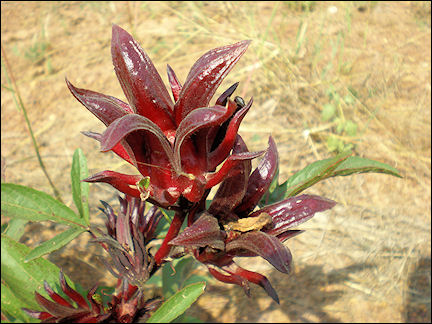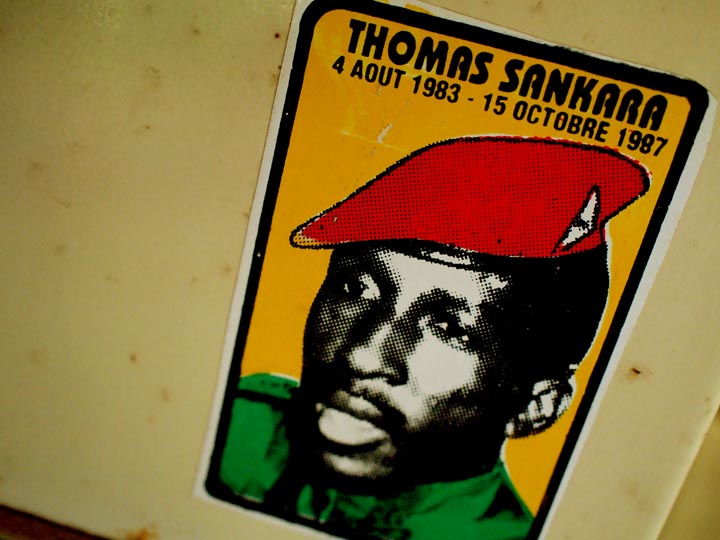New Year’s Day. January 1. New Years in Burkina Faso is celebrated with big parties spent with friends and family. Despite creed, tribe, or background, everyone comes together to bring in the New Years. It’s the biggest celebration of the year in many places.
Anniversary of the 1966 coup d’etát. January 3. Only six
years after Burkina Faso declared its independence from France, a military coup
took place. The coup got rid of the
first president Maurice Yaméogo and all of the members of the National
Assembly, as well as suspended the constitution. In his place, they put Lt.
Col. Sangoulé Lamizana as the head of the government. The Army remained in
control for four years before they decided to go to a more civilian-based
government. Lamizana remained in power throughout the 1970s and won re-election
in 1978.
Women’s Day. March 8.
In Burkina Faso, people get the day off of work to celebrate. This is an
international holiday, so celebrations vary across the world. In many
countries, giving flowers is customary, but as to what flowers are given
generally depend on the country and what’s in season. But it’s also a day to
address women’s issues, such as equal pay for equal work, gender
discrimination, and women’s health issues. Many cities will have community events such as
blood drives, health screenings, and educational forums.
Easter. Varies. For the Christians, people will often start
the day off with a service at their church. Many people will also celebrate
with a large meal afterwards with friends and family.
Easter Monday. Varies. For most people, Easter Monday is a
day of rest. In Burkina Faso, people have the day off of work and school to do
so. They may also make use of this day to spend doing recreational activities
with friends and family.
Labor Day. May 1.
This is a holiday in honor of the worker. It’s often a time to discuss labor
issues, but most people use this as a day to spend relaxing with their families
and friends.
Revolution Day. August 4. It’s a holiday that is celebrated in
conjunction with Independence Day, which is celebrated the next day. It was
originally in regards to the original revolution that took place in 1960 which
led to Burkina Faso’s independence. Of course, there have been several other
revolutions since then.
Independence Day. August
5. This day marks the day that Burkina Faso gained its independence from
France. It still is a poor country, but economically speaking, it is making
small, yet consistent gains each year. Each year, everyone makes an oath to keep
peace in their country: it seems like it’s working to some degree, given that
there are about 60 different ethnic groups and a myriad of different religions.
Eid ul-Fitr. Varies. This is a Muslim holiday that
celebrates the end of Ramadan, the month of fasting. People will often go to
the mosque for special prayers. On this day people make a huge feast of a meal
and celebrate it with friends and family.
Assumption. August
15. This is a Christian holiday that is centered around the assumption that
this is the day the Virgin Mary had ascended into Heaven. Many people will
attend a special service at the church, and may participate in a variety of
Christian traditions surrounding the holiday.
Anniversary of the 1987 coup d’etát. October 15.
In 1983, Thomas Sankara, along with Blaise Compaoré (the current
president), staged a coup to take over the short-lived Ouédraogo
administration. Sankara was the one who changed the country’s name to Burkina
Faso. Three years later, another coup was staged and Sankara was killed as a
result. Compaoré moved up and gained control, and a lot of people reported he
had something to do with Sankara’s death and with the staging of the coup. He’s
been in power since the 1987 coup, and it’s reported that he’s a very wealthy
man, despite the fact that the country he governs is the third least-developed
country in the world.
Eid ul-Adha. Varies. Also known as Tabaski in Burkina Faso (not
to be confused with Tabasco, one of my favorite condiments). It’s also known as
the Great Feast and can last up to three days for those who do not go on a
pilgrimage during this time. It’s a
celebration in honor of Abraham’s almost-sacrifice of his only son. For many Muslims around the world, an animal
is sacrificed, and a third is given to family, a third is kept, and a third is
given to charity. Nowadays, it may also
be customary to give to local community food banks or other charitable
organizations.
All Saints Day. November 1. One of the Christian holidays
(especially for Catholics); it’s a holiday designated towards homage to all the
saints, and especially to the saints who do not have their own designated days
throughout the rest of the year.
Proclamation of the Republic. December 11. This is a national day in Burkina
Faso. Although the country actually
declared its independence on August 5, 1960, December 11 was the day which
Upper Volta became an autonomous region within the French Community two years
prior to its independence. Parades march
through the streets and the flag is proudly displayed throughout the land. The
government foots an expensive bill for elaborate celebrations, despite the fact
that it continually ranks low on human development.
 |
| I had to laugh at the snowman, because when was the last time Burkina Faso saw snow? |
Christmas. December
25. Christmas tends to be celebrated more in the cities rather than out in the
rural areas. The Virgin Mary plays a key
role in Christmas celebrations, and can even be seen parading through the
streets to church in the back of a truck. Christmas songs fill the air. They believe that Pere Noel (Father
Christmas) brings gifts to children and families on December 23. Special meals
with chicken or mutton are served, and it’s the one day people try not to serve
the same old-same old staple: rice. Many people attend church services and have
parties with friends and families. Even many Muslims join in some of the festive
atmosphere, but not for the same reasons mind you.
Up next: Art and Literature




No comments:
Post a Comment